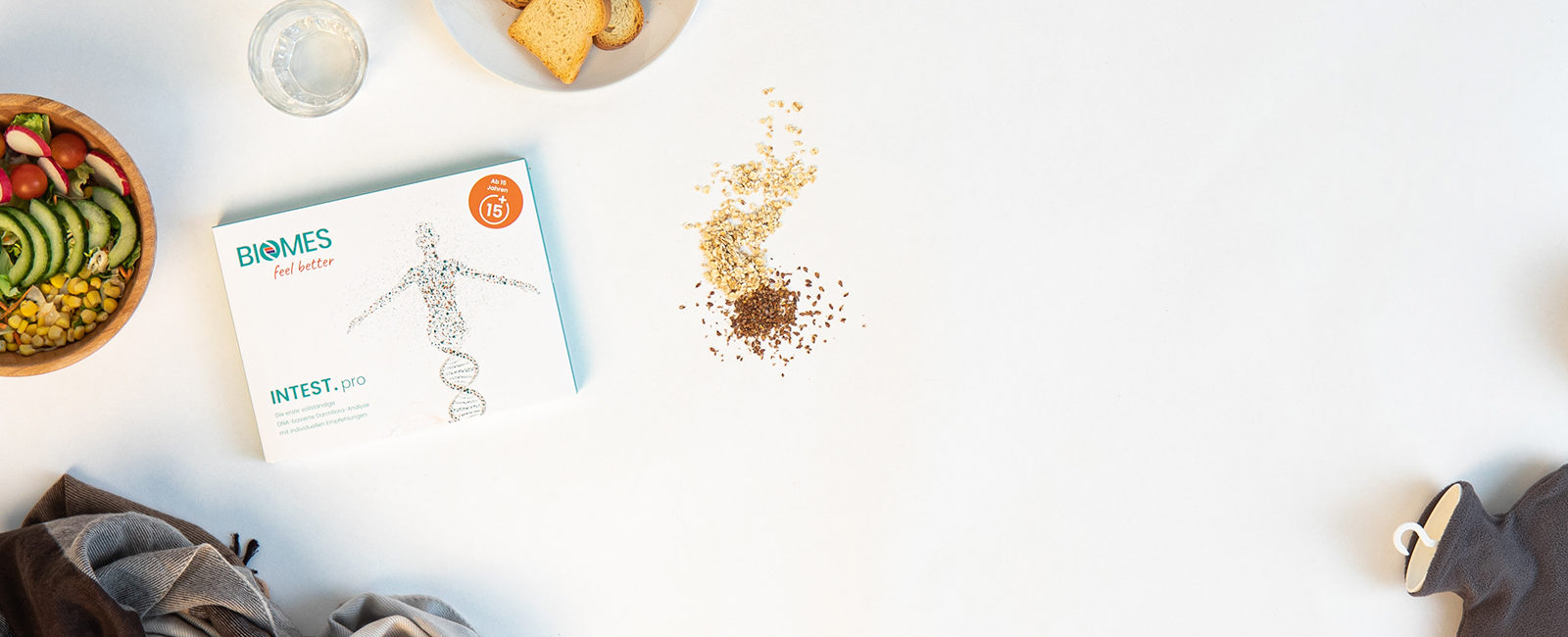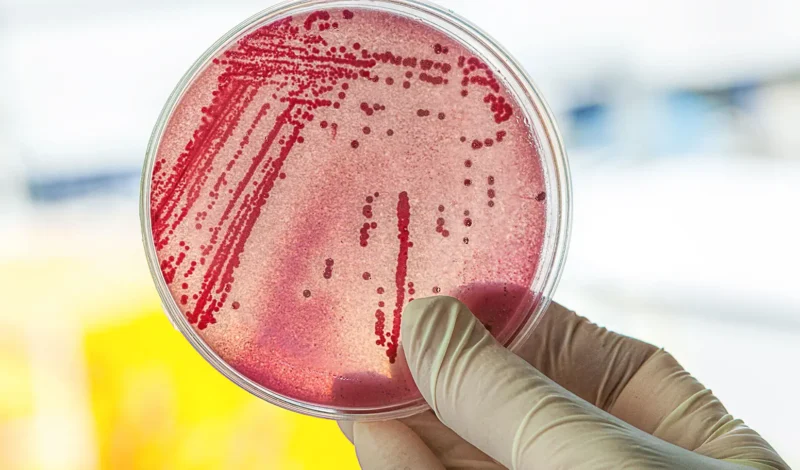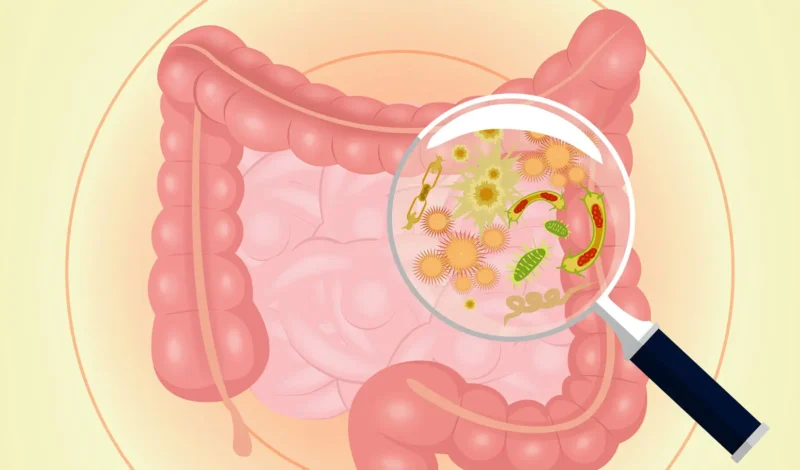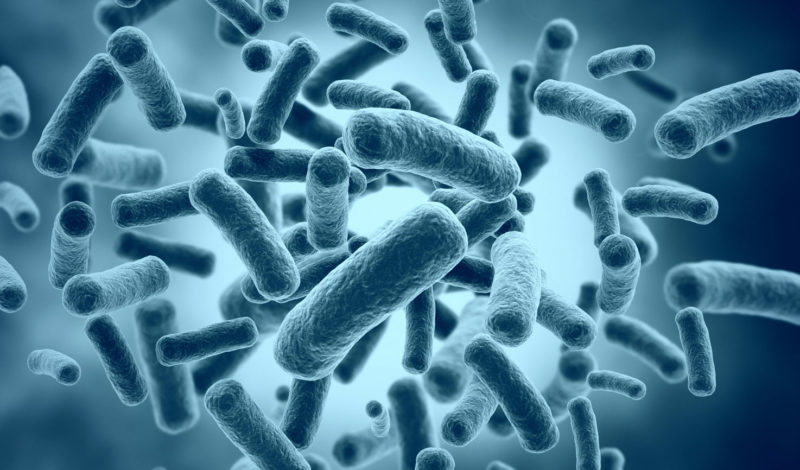What are E. coli bacteria? E. coli bacteria – or simply E. coli bacteria – are considered to be the [...]
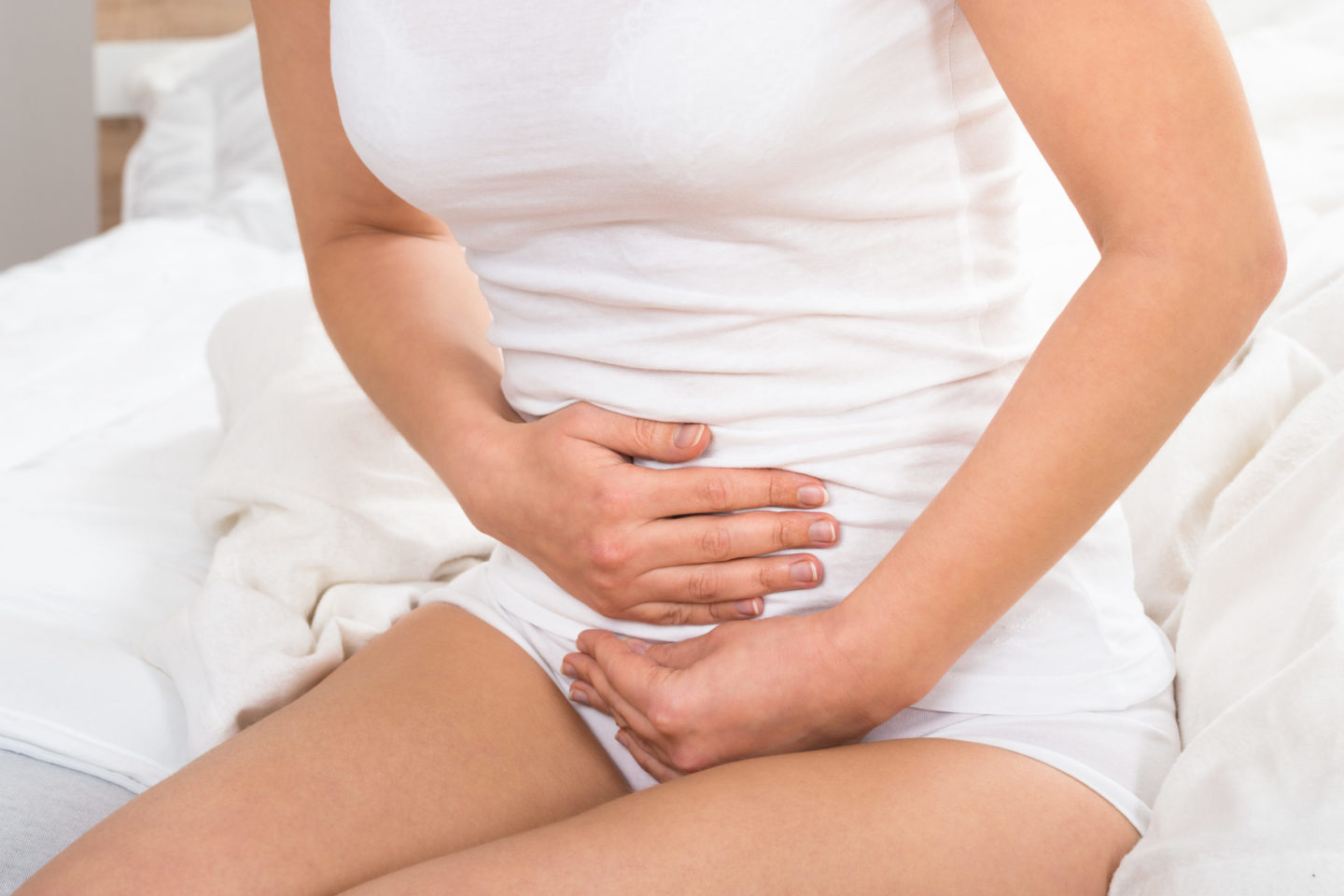
How intestinal bacteria work in constipation
Did you know? How the toilet flushes out depends on trillions of little helpers. We’re talking intestinal bacteria. Constipation, diarrhoea and other intestinal problems can have many causes, but in many cases they are based on a disturbance of the intestinal flora. Constipation can be a warning signal for an imbalance of the microbiome in the intestine.
In 2018, almost 2.7 million Germans stated in a survey that they had taken over-the-counter drugs for diarrhoea in recent months1 . However, despite the widespread nature of the problem, hardly anyone likes to talk about this topic in public. For some time now, however, research has been intensively studying the question of how intestinal bacteria behave in constipation. On the basis of current studies, the scientists at BIOMES explain how you can influence your intestinal flora to relieve constipation.
How intestinal bacteria cause constipation
The intestinal flora is a separate ecosystem consisting of many different species of bacteria. All of them have certain tasks in the utilization of food. As long as none of the species dominates too much, digestion is ideal.
Each type of intestinal bacteria produces different metabolic products. Lactobacilli, for example, produce tryptamine – a substance that stimulates the intestine to transport the food pulp. The amino acid stimulates proteins in your intestinal wall to allow fluid to pass into the gastrointestinal tract. Such mechanisms of your intestinal flora work against constipation.
However, if too little tryptamine is produced in the intestine, the transport of the intestinal contents comes to a halt. This is also in line with the results of the Mayo Clinic Rochester2, which indicate that tryptamine-producing intestinal bacteria help against constipation. The doctors involved in the study see this as an opportunity to treat constipation naturally in the future. As they emphasize, no side effects were observed after the administration of lactobacilli.
But be careful: Too much fluid in the intestines leads to diarrhoea. Although a balanced amount of tryptamine-producing intestinal bacteria prevents constipation, an excess of such bacteria is not healthy either. As always, a healthy balance is important.
These foods are good for your intestinal bacteria in constipation
You have probably read that if you have problems with constipation you should drink a lot and pay attention to your diet. In order for the intestinal bacteria to counteract constipation, you should ideally supply them with the right food. Lactobacilli, for example, do not like salt and are not very fond of junk food. They multiply above all when there is a sufficient supply of fibre. These are contained in larger quantities in the following foods, for example:
- Nuts
- Seeds
- Dried fruit (apples, berries, pears)
- Vegetables (cabbage, potatoes, carrots)
- Legumes (lentils, beans)
Still, watch out: Always avoid an unbalanced diet. Otherwise an imbalance in the intestinal flora will develop. Constipation is in this case one, but not the only conceivable consequence. Intestinal problems can also manifest themselves in other ways – for example in the form of skin problems or even mood swings.
How healthy is your intestinal flora? Test it with INTEST.pro from BIOMES
Do you suffer from constipation regularly? Then perhaps your intestinal bacteria are to blame. But before you start, make sure you check other possible causes, such as dehydration, lack of exercise or certain diseases. If you would also like to know what the state of your intestinal flora is, you can find out with the help of the test kit INTEST.pro from BIOMES. This allows you to check the balance of your intestinal flora according to the latest state of biotechnology3.
For an exact analysis of your intestinal flora , simply send the kit including a stool sample back to BIOMES and you will receive discrete information about the quantitative distribution of your intestinal bacteria. Our scientists also have helpful tips against constipation, which we make available to you via our online dashboard.
By choosing the right foods, you improve the condition of your intestinal flora, which also helps against constipation in the long term. If your microbiome works ideally, this can lead to an improvement of the entire metabolism – and ideally this can even be accompanied by a positive change in weight.
2. Yogesh, B. et al (2018): Gut Microbiota-Produced Tryptamine Activates an Epithelial G-Protein-Coupled Receptor to Increase Colonic Secretion, Cell Host & Microbe, DOI: 10.1016/j.chom.2018.05.004
3. Cho I, Blaser M J. The human microbiome: at the interface of health and disease. Nature Reviews Genetics 2012:13, 260-270. https://www.nature.com/articles/nrg3182
